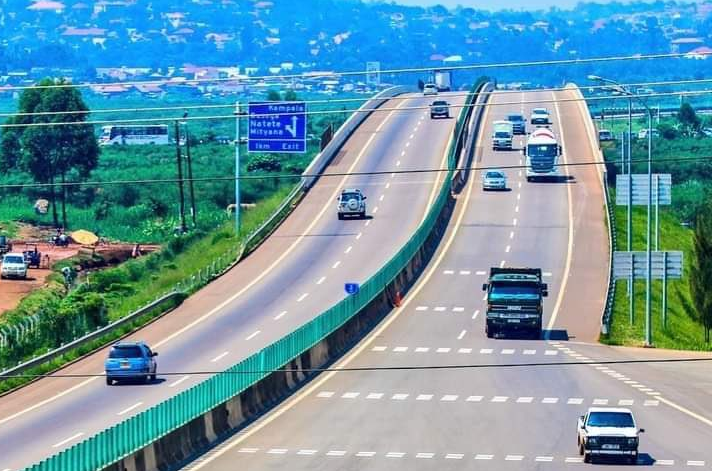Uganda National Roads Authority (UNRA) collected a total of Shs 13 billion from tolling the Kampala-Entebbe expressway in the last four and a half months, the contractor Egis has revealed.
Joy Nabasa, the public relations manager of French firm Egis which maintains the road and collects the toll on behalf of UNRA, says that they collected the money between January 8, 2022, and May 24, 2022, when the exercise began.
According to Nabasa, they also registered 2,206,558 from January to April, with a monthly average of 551,640 passages and 20,000 passages daily. She explains further that during the first four months, each of the three toll gates located in Mpala, Busega, and Kajjansi recorded an average of 6,664 passages daily.
Allan Ssempebwa, the communications officer at UNRA, says an average of 20,000 passages made daily has surpassed the projected daily average of 13,000 passages. These include incoming and outgoing air passengers, taxi operators, visitors, and Entebbe residents.
Ssempebwa says the number of passages has been increasing over the past four months from 480,234 passages in January to 574,629 in February, 594,124 in March, and 557,066 in April.
Nabasa says May has so far recorded the highest number of passages at 630,000. This brings the total number of passages from January 8 to May 31 to 2,920,000. Ssempebwa says that the ever-increasing traffic on the road is an indicator that it is not a “white elephant” as perceived by some sections of the public when the government announced plans to toll the expressway.
“The more passages, the more money we will collect to repay the loan, operate and maintain the road,” he said.
Motorists pay between Shs 3,000 and Shs 18,000 per trip on the expressway, which connects from Kampala Northern bypass at Busega and joins the Old Entebbe road at Mpala. The collections will be used to repay the $350 million loan government acquired from the Exim Bank of China to construct the 51.4-kilometre expressway.
According to the loan agreement, the repayment schedule runs from July 21, 2019, to January 21, 2032. In the 13-year repayment period, the government plans to pay $26.8 million (about Shs 95 billion) every year. This means that the government should collect at least Shs 7.8 billion monthly to meet the loan obligation.
However, some motorists led by lawyer Michael Aboneka want UNRA and Egis to install streetlights along the expressway. Aboneka has threatened to sue the government for failing to light the expressway and yet it collects over Shs 2 billion monthly from the road toll. He wrote to the minister of Works and Transport, Gen Katumba Wamala on March 23, 2022, about the lack of street lights.
“As you are aware, the Kampala-Entebbe expressway and the Kampala Northern bypass are engulfed in darkness as they have no street lights. This is not only dangerous to motorists and road users but has also contributed to the insecurity and criminality on the two highways,” reads the letter.
He asked Katumba’s “good office to urgently provide street lights on the two highways for the safety of Ugandans and all road users who painfully pay a road toll each time they use the Kampala-Entebbe expressway.”
Ssempebwa urges Aboneka and other road users to be patient, saying “we have procured over one thousand street lights to be installed on both sides of the road and hope to start installing them next month. We are only waiting for tax clearance from Uganda Revenue Authority for the lighting poles and lights.”
Nabasa says Egis and UNRA are working round the clock to install streetlights on the road by end of this year. She adds that the lighting process involves designing the light set up, setting out and marking lighting locations, setting up electricity poles and substations, procurement, foundation, and erection of lighting poles, and connection of electricity to the poles.
“The designs, location marking, and setting up of electricity poles and substations are complete while procurement of lighting poles is 50 per cent. The rest of the activities are below 5 per cent because they can only be done once procurement is complete,” she said.
*********
URN

